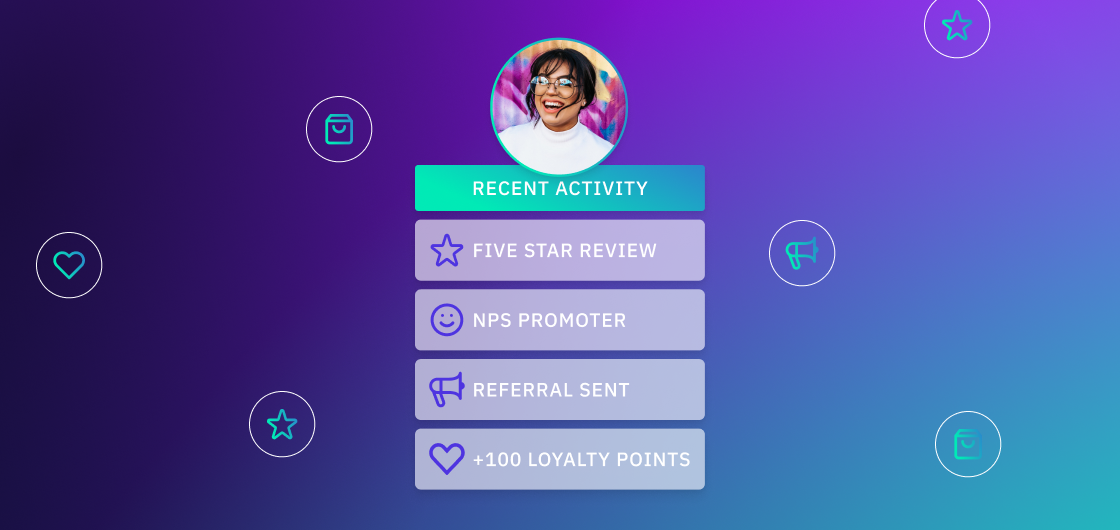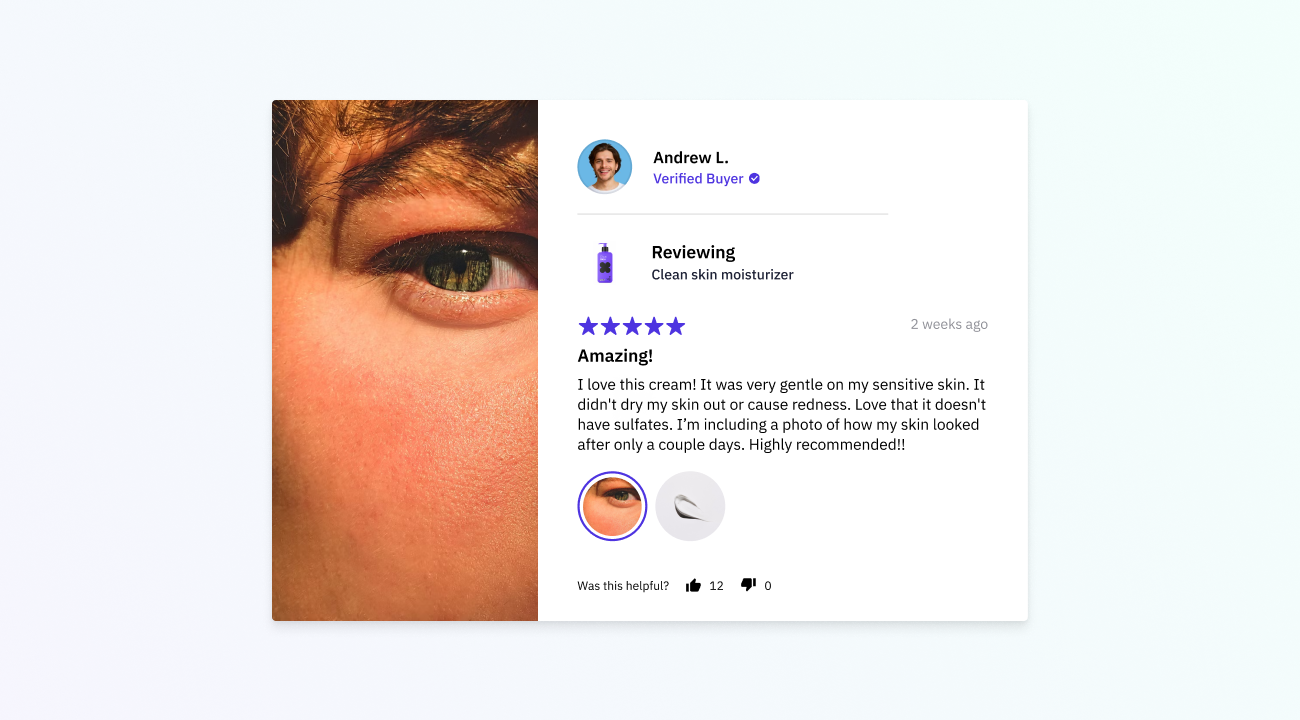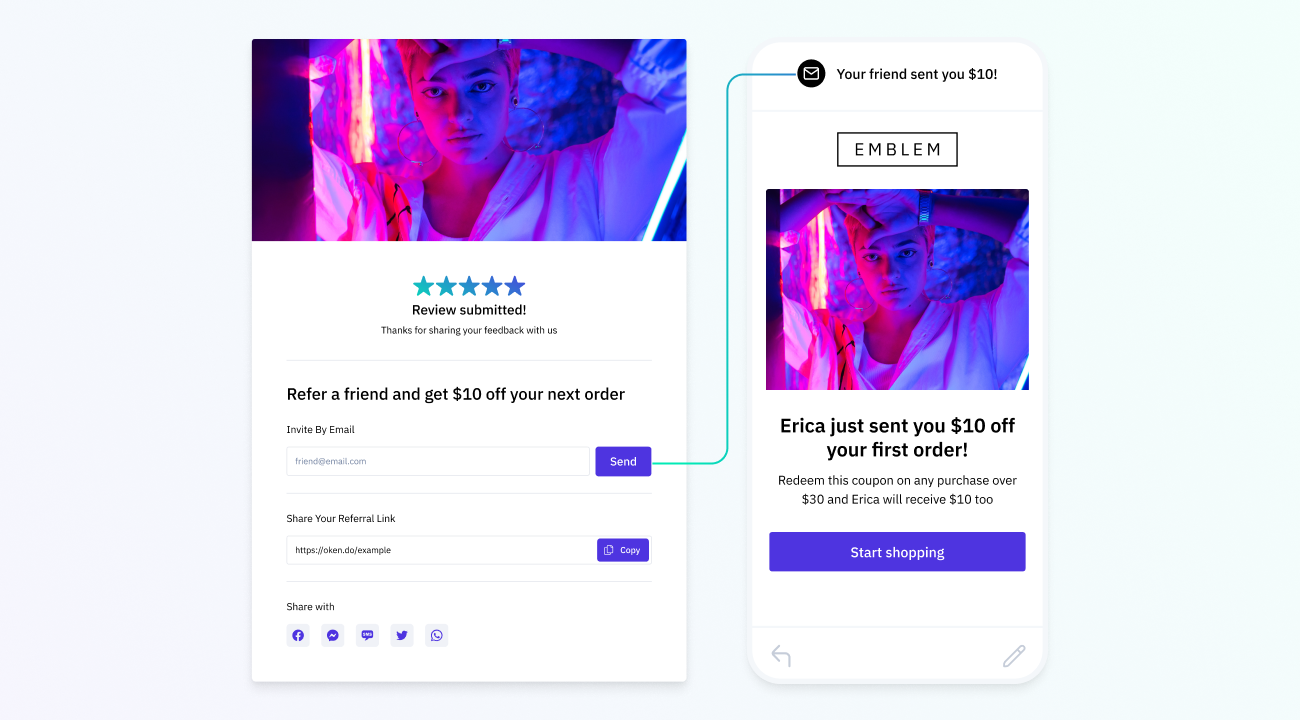Unlocking Brand Advocacy: What Is It And How Do You Encourage It?

Brand advocacy is an increasingly popular term used among marketing professionals today, but what does it actually mean, and why is it so important?
In this blog, we’ll provide a brief definition of brand advocacy, explain why it matters, and highlight some specific ways your brand can unlock its benefits for maximum success.
What is Brand Advocacy?
Brand advocacy refers to the various ways that loyal and satisfied customers recommend your brand through word-of-mouth marketing. This could be anything from referring friends, family, and social media followers to submitting a high-quality review that highlights their positive experience with your brand and products.
While brand advocacy can happen organically based on a customer’s satisfaction and desire to share their experiences, it can also be encouraged through a variety of specific processes and strategies, such as an incentive-based referral program.
Why Does Brand Advocacy Matter?
If you already have a satisfied customer base that continues to make repeat purchases, you may be wondering why it’s worth the extra effort to convert these customers into brand advocates.
Here are five ways that focusing on customer advocacy benefits your brand:
Generating Social Proof
Social proof plays a pivotal role in shaping the perception and success of brands today. When potential customers see positive experiences and endorsements from others, they feel reassured in their decision-making process, leading to increased brand preference and loyalty. Brand advocates, in particular, have a profound impact on social proof. When they tell their friends and family about your brand, it backs up your brand’s own marketing claims and builds trust and authenticity.

Similarly, when they submit a high-quality review with user-generated content (UGC) such as photos and videos, it can strongly influence others to engage with your brand. It’s no surprise, then, that according to Okendo research on ecommerce loyalty and retention, customer reviews are a top source of information that customers rely on in order to make more confident purchasing decisions.
Expanding Your Audience
When brand advocates share their positive experiences, whether in a detailed review or direct referral to their peers, it expands your brand’s reach to new customers beyond traditional marketing channels and creates word-of-mouth buzz regarding your products.
Lowering Acquisition Costs
There is typically very little cost associated with encouraging brand advocacy among your most loyal and satisfied customers. This is because you’re essentially letting your most supportive customers do the work for you to attract new shoppers. This is, of course, a huge draw for marketing teams as they strive to achieve more with smaller budgets.
Increasing Customer Loyalty
Customer loyalty is more valuable than ever, and while brand advocacy might not appear to directly benefit the customer, the right strategy will ensure that brand advocates are rewarded for their loyalty and willingness to recommend your products. For example, allowing customers to receive a discount in exchange for a referral can help communicate to the customer that they are valued, and in turn help reinforce their loyalty to your brand.
Increasing Revenue
Customer loyalty also means increased revenue through repeat purchases and higher order values. In fact, research has shown that customers will spend up to 43% more when shopping with a brand they consider themselves to be loyal to. Moreover, encouraging brand advocacy through referral marketing also works to bring in additional revenue and increase ROI on campaigns, and referrals have even been shown to have a considerably higher average conversion rate than other channels.
3 Ways to Encourage Brand Advocacy
It’s important to remember that brand advocacy isn’t something to be expected, but rather something to be encouraged as part of your broader marketing strategy. To show how this works, here are three specific strategies your brand can leverage to convert loyal customers into brand advocates.
Strengthen Relationships through Community Building
Building a sense of community throughout your customer base is an incredibly effective strategy for strengthening your brand’s relationship with loyal customers. When customers feel like they are a part of something meaningful or bigger than themselves, it greatly increases the chance that they will promote your brand to friends and family.
To begin building a community of loyal brand advocates, consider starting a dedicated social media page that allows customers to interact with your brand and their peers or participate in exclusive promotions. Separately, try to personalize communications with customers as much as possible to inspire a sense of connection to your brand, whether it’s email outreach or SMS.
Dreamland Baby is a great example of a brand successfully building a loyal community of customers. By scaling its review collection program, this seller of innovative sleep solutions for infants found ways to resonate with – and build trust amongst – its passionate community of parents. By focusing on customer reviews to spread information about their products, it was not only able to connect with existing customers but create relationships with new shoppers, too.
Incentivize Brand Advocacy with a Referral Program
When it comes to encouraging brand advocacy, creating a referral program is one of the most effective and direct approaches your brand can take. This means rather than simply hoping customers share their positive experiences, you actually prompt them to leave a referral right after they have left a review, or even post-purchase through email/SMS to request the recommendation.

But the right referral program won’t simply ask customers for a referral, it will incentivize them with the opportunity to earn a reward, such as a discount on a future purchase, in exchange for their recommendation. In fact, according to Okendo’s own research, 70% of customers say they would be more likely to refer a brand if they received a reward.
Encourage Brand Advocacy Through Your Loyalty Program
Loyalty programs have proven incredibly effective in encouraging repeat purchases, improving engagement, and strengthening customer relationships. Similarly, your loyalty program can be utilized for the specific purpose of promoting brand advocacy.
Much like offering incentives through a referral program, a loyalty program can be designed to reward your customers with additional loyalty points whenever they leave a review. For example, Amora Coffee uses Okendo’s platform alongside Klaviyo and Attentive for email and SMS to offer its customers “Amora Points” in exchange for leaving a review. The brand even takes it a step further, allowing customers to maximize the rewards they receive when they include a photo or video of the product they purchased.
It’s important to note that what all of these strategies have in common is that they build great customer experiences, which is the core of brand advocacy.
As Darin Lynch, Founder & CEO, Irish Titan, says: “Brand advocates only emerge over time. A little self deprecating humor and twinkle in the eye go a long way, but nothing is more valuable than consistently offering a high-quality experience. Those are table stakes, then if a brand voice and values are authentic and consistent for years (there’s no brand if values and voice are constantly changing), you have the ingredients for brand advocacy soup for the soul.”
Further Reading: Referral Marketing: A Comprehensive Guide for Shopify Brands
Want to learn more about how Okendo can help you convert customers into brand advocates through our all-in-one Reviews, Surveys, and Referrals platform? Book a demo to get started.